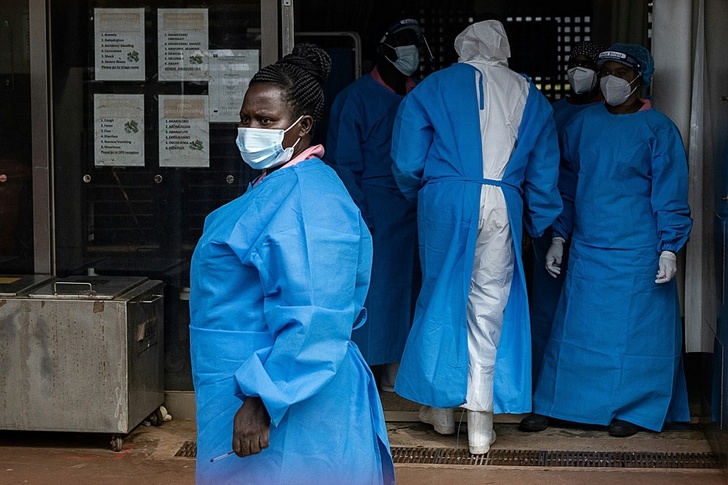World Health Organization chief Tedros Adhanom Ghebreyesus said Wednesday that clinical trials could start within weeks on vaccines to combat the strain of Ebola behind a deadly outbreak in Uganda.
Kampala last month announced Uganda's first fatality from the highly contagious disease since 2019, with Health Minister Jane Ruth Aceng on Wednesday giving a death toll of "over 19" including several health workers.
There is currently no vaccine for the Sudan ebola virus circulating in the East African country.
"Unfortunately, the Ebola vaccines that have been so effective in controlling recent outbreaks in DRC (Democratic Republic of Congo) are not effective against the type of ebola virus which is responsible for the current outbreak in Uganda," Tedros told a regional ministerial meeting to discuss the emergency response to the crisis.
"Several vaccines are in various stages of development against this virus, two of which could begin clinical trials in Uganda in the coming weeks, pending regulatory and ethics approvals from the Ugandan government."
Tedros, who spoke to the meeting from Geneva, reported 54 confirmed and 20 probable cases, while more than 660 contacts are currently under "active follow-up".
The initial outbreak, which was first reported on September 20, was discovered in Uganda's central district of Mubende, and infections have been found in four other areas.
"Our primary focus now is to support the government of Uganda to rapidly control and contain this outbreak, to stop it spreading to neighbouring districts, and neighbouring countries," Tedros told reporters.
A WHO assessment has found the risk of the Sudan ebola virus spreading to neighbouring countries was "high due to cross border movements between Uganda and other countries".
Ebola is an often-fatal viral haemorrhagic fever named after a river in DR Congo where it was discovered in 1976.
Human transmission is through bodily fluids, with common symptoms fever, vomiting, bleeding and diarrhoea. Outbreaks are difficult to contain, especially in urban environments.
People who are infected do not become contagious until symptoms appear, which is after an incubation period of between two and 21 days.
The worst epidemic in West Africa between 2013 and 2016 killed more than 11,300 people.
Uganda has experienced several Ebola outbreaks, most recently in 2019 when at least five people died. The neighbouring DRC has had more than a dozen epidemics, the deadliest killing 2,280 people in 2020.
Last week the United States announced tighter screening for people who had travelled to Uganda.
txw/bp
© Agence France-Presse
Your content is great. However, if any of the content contained herein violates any rights of yours, including those of copyright, please contact us immediately by e-mail at media[@]kissrpr.com.
Source: Story.KISSPR.com

